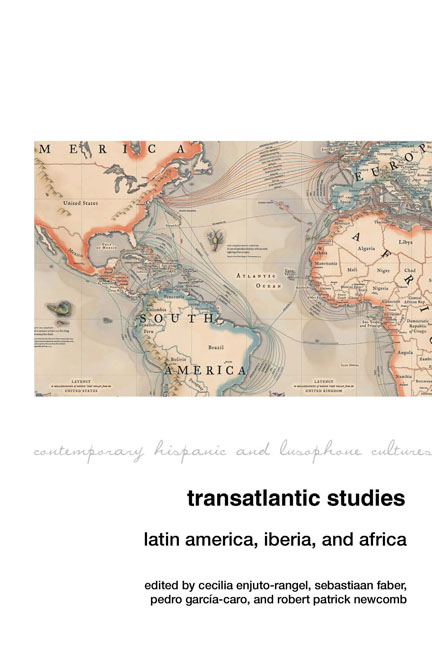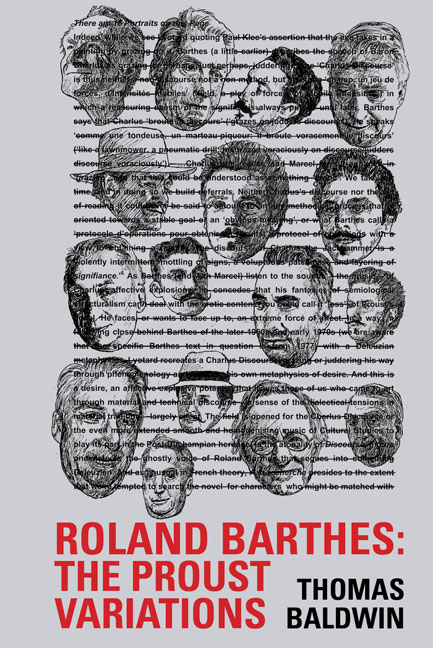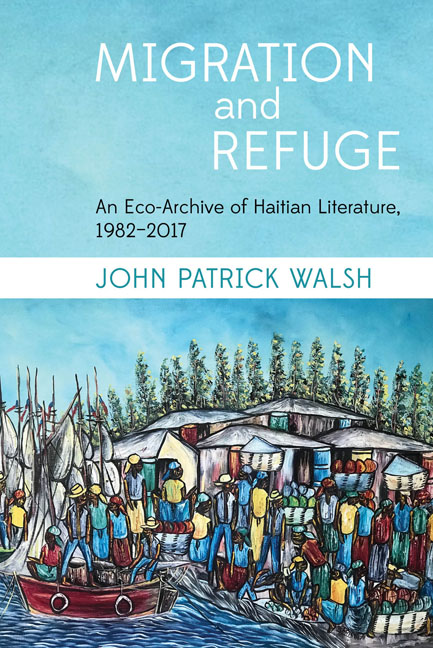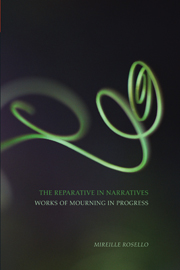33 results in Contemporary French and Francophone Cultures

Transatlantic Studies
- Latin America, Iberia, and Africa
-
- Published by:
- Liverpool University Press
- Published online:
- 10 July 2020
- Print publication:
- 19 November 2019
-
- Book
- Export citation

Making Waves
- French Feminisms and their Legacies 1975–2015
-
- Published by:
- Liverpool University Press
- Published online:
- 09 July 2020
- Print publication:
- 11 December 2019
-
- Book
- Export citation

Contesting the Classroom
- Reimagining Education in Moroccan and Algerian Literatures
-
- Published by:
- Liverpool University Press
- Published online:
- 08 July 2020
- Print publication:
- 05 November 2019
-
- Book
- Export citation

The Reclining Nude
- Agn's Varda, Catherine Breillat, and Nan Goldin
-
- Published by:
- Liverpool University Press
- Published online:
- 08 July 2020
- Print publication:
- 19 October 2019
-
- Book
- Export citation

Roland Barthes: The Proust Variations
-
- Published by:
- Liverpool University Press
- Published online:
- 08 July 2020
- Print publication:
- 06 September 2019
-
- Book
- Export citation

Revisionary Narratives
- Moroccan Women's Auto/Biographical and Testimonial Acts
-
- Published by:
- Liverpool University Press
- Published online:
- 08 July 2020
- Print publication:
- 26 September 2019
-
- Book
- Export citation

France in Flux
- Space, Territory and Contemporary Culture
-
- Published by:
- Liverpool University Press
- Published online:
- 03 July 2020
- Print publication:
- 28 March 2019
-
- Book
- Export citation

Our Civilizing Mission
- The Lessons of Colonial Education
-
- Published by:
- Liverpool University Press
- Published online:
- 03 July 2020
- Print publication:
- 30 May 2019
-
- Book
- Export citation

Migration and Refuge
- An Eco-Archive of Haitian Literature, 1982–2017
-
- Published by:
- Liverpool University Press
- Published online:
- 02 July 2020
- Print publication:
- 27 March 2019
-
- Book
- Export citation

Middlebrow Matters
- Women's reading and the literary canon in France since the Belle Époque
-
- Published by:
- Liverpool University Press
- Published online:
- 01 July 2020
- Print publication:
- 30 January 2018
-
- Book
- Export citation

The Mauritian Novel
- Fictions of Belonging
-
- Published by:
- Liverpool University Press
- Published online:
- 30 June 2020
- Print publication:
- 08 January 2019
-
- Book
- Export citation

Entangled Otherness
- Cross-gender Fabrications in the Francophone Caribbean
-
- Published by:
- Liverpool University Press
- Published online:
- 29 June 2020
- Print publication:
- 16 November 2018
-
- Book
- Export citation

Maps and Territories
- Global Positioning in the Contemporary French Novel
-
- Published by:
- Liverpool University Press
- Published online:
- 25 June 2020
- Print publication:
- 17 May 2019
-
- Book
- Export citation

Beyond Return
- Genre and Cultural Politics in Contemporary French Fiction
-
- Published by:
- Liverpool University Press
- Published online:
- 25 June 2020
- Print publication:
- 20 May 2019
-
- Book
- Export citation

Traces of War
- Interpreting Ethics and Trauma in Twentieth-Century French Writing
-
- Published by:
- Liverpool University Press
- Published online:
- 03 December 2019
- Print publication:
- 28 November 2017
-
- Book
- Export citation

Vivre Ici
- Space, Place and Experience in Contemporary French Documentary
-
- Published by:
- Liverpool University Press
- Published online:
- 19 November 2019
- Print publication:
- 19 March 2018
-
- Book
- Export citation

Pacifist Invasions
- Arabic, Translation and the Postfrancophone Lyric
-
- Published by:
- Liverpool University Press
- Published online:
- 10 September 2019
- Print publication:
- 25 October 2017
-
- Book
- Export citation

The Performance of Listening in Postcolonial Francophone Culture
-
- Published by:
- Liverpool University Press
- Published online:
- 07 September 2019
- Print publication:
- 23 January 2018
-
- Book
- Export citation

Architextual Authenticity
- Constructing Literature and Literary Identity in the French Caribbean
-
- Published by:
- Liverpool University Press
- Published online:
- 01 May 2018
- Print publication:
- 22 September 2017
-
- Book
- Export citation

The Reparative in Narratives
- Works of Mourning in Progress
-
- Published by:
- Liverpool University Press
- Published online:
- 05 June 2015
- Print publication:
- 31 January 2010
-
- Book
- Export citation

